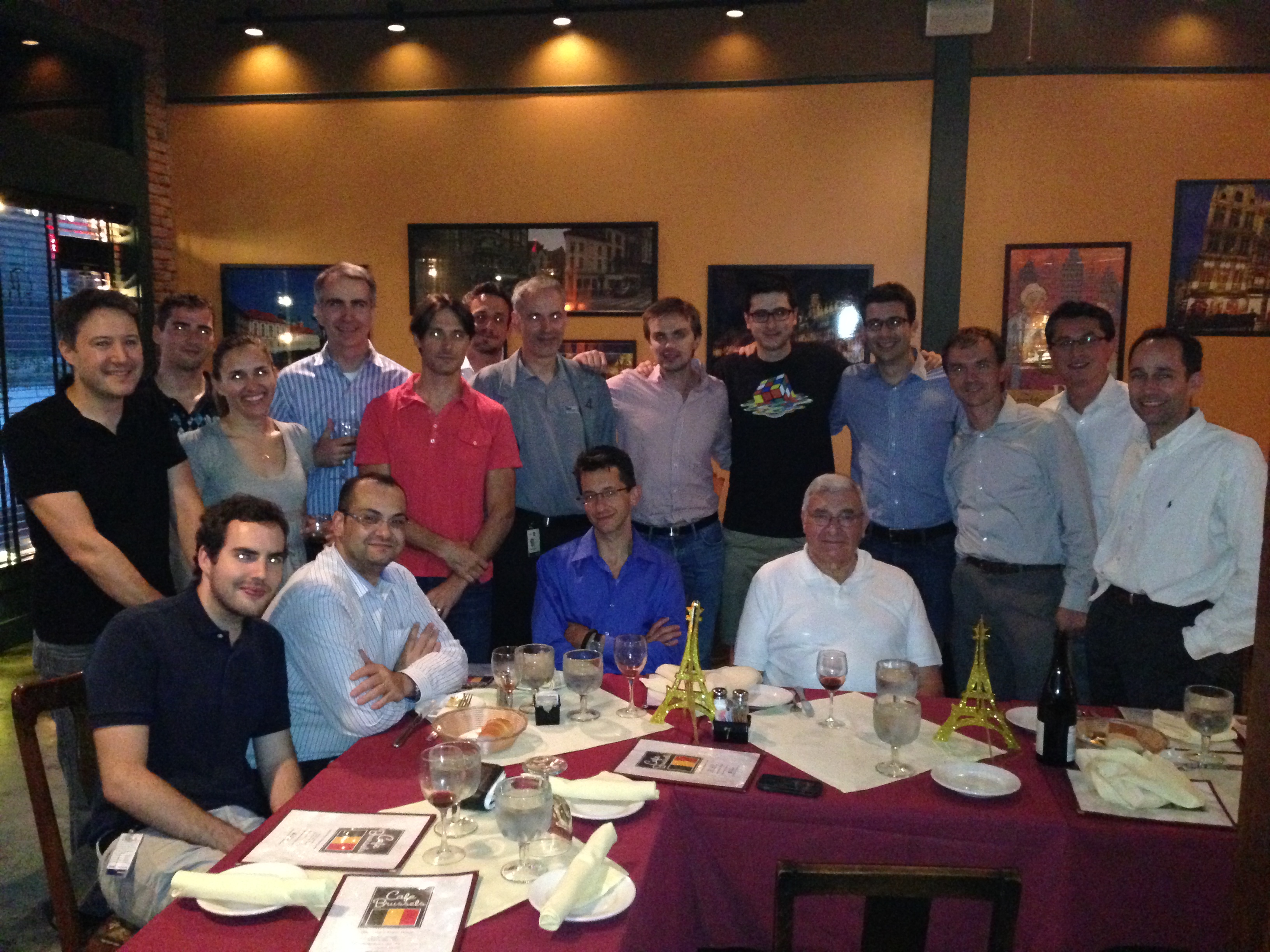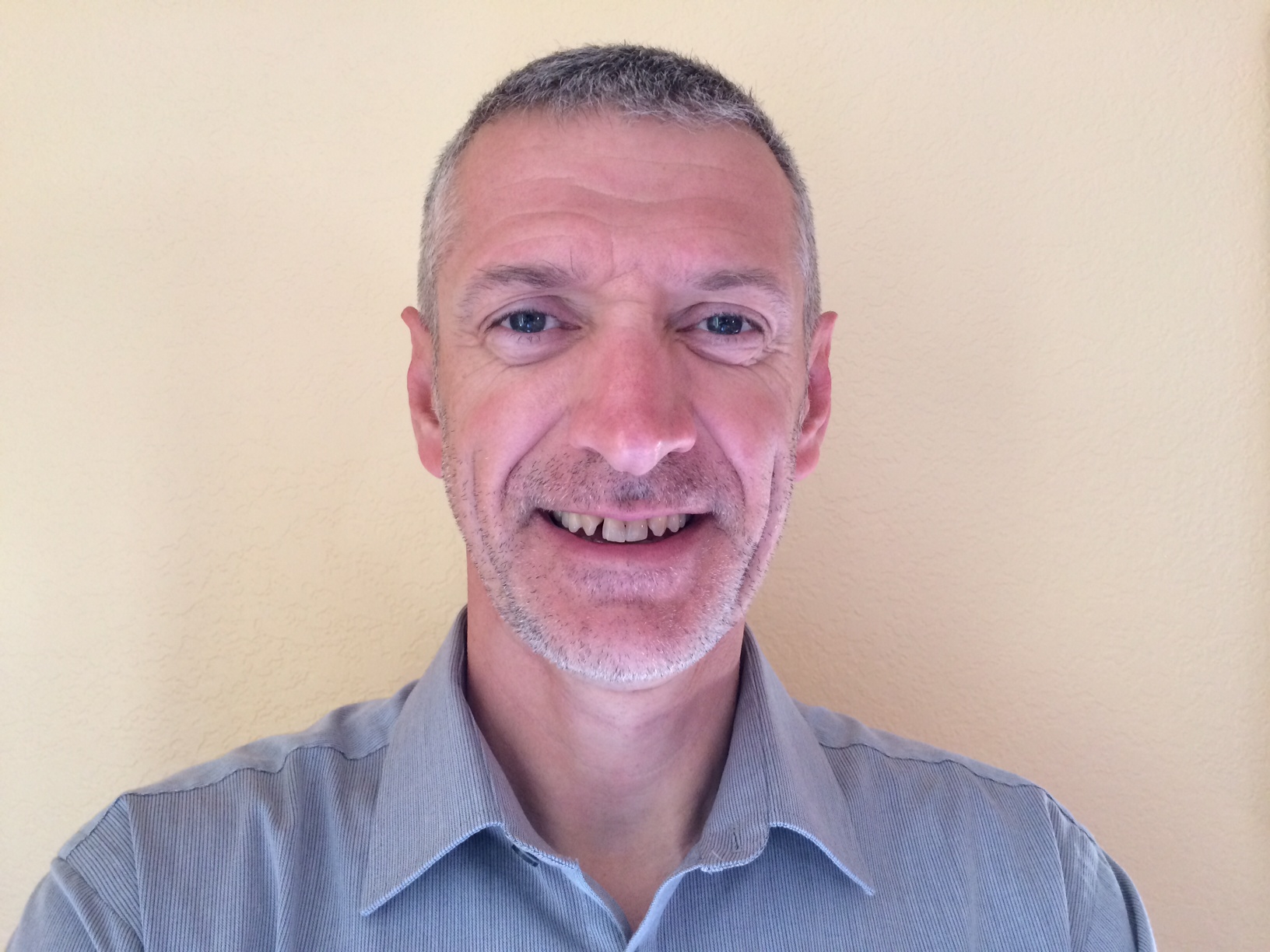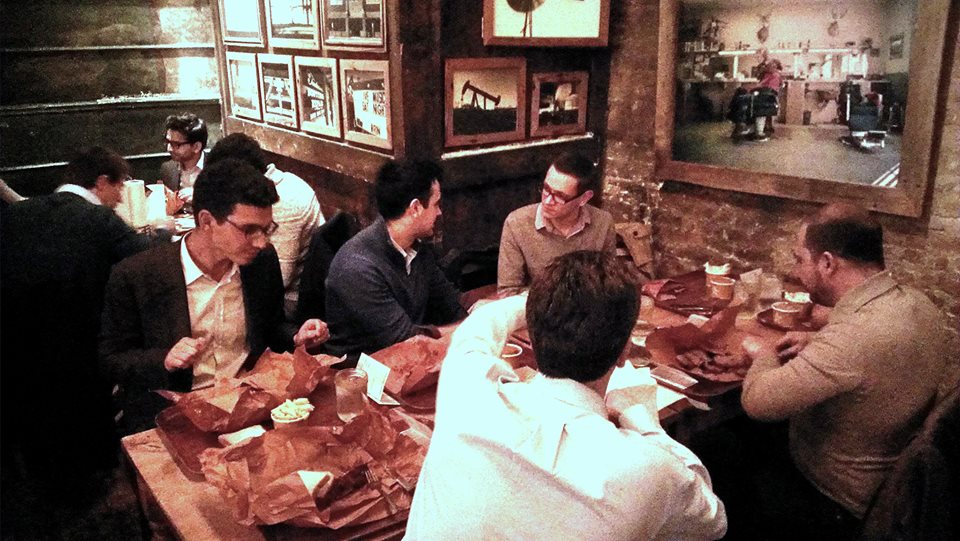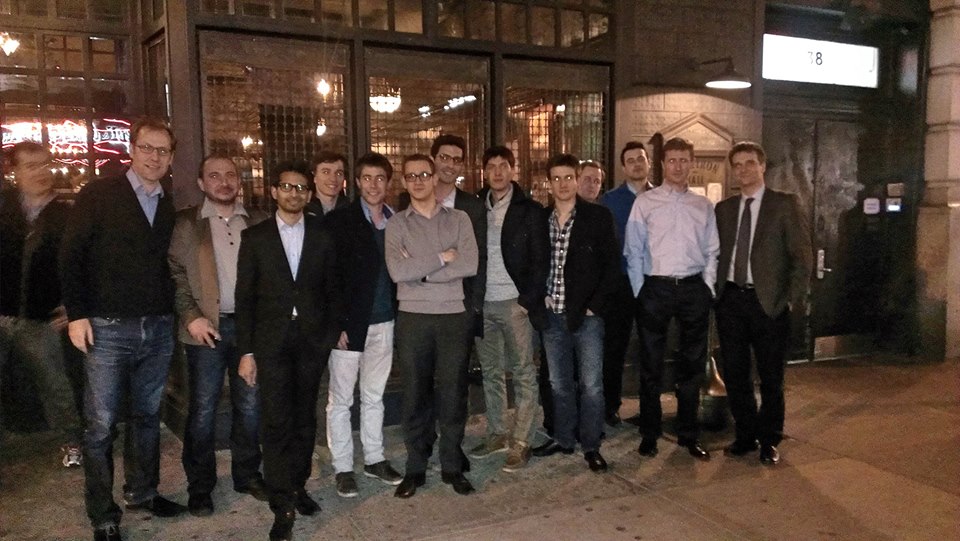- Details
Once a month we feature a member of our US based alumni community. We hope this serves as a way to stay in touch and get to know one another despite the grand size of the US.
Alumni and AFAM member Karim Boudah (Cl 91) is our next AFAM member profile.
Thank you Karim for sharing with us!
1. Tell us about your career path and area of expertise today. How did it come about?
I graduated from Arts & Metiers (Cl191) in 1994 and from Supelec (1996), spent about one year in the French Army and then got hired by Schlumberger in 1997. I spent two years designing electronics for oilfield tools used in completion and testing services. Then I got transferred in Houston Texas early 2000. During five years in Houston, I designed oilfield equipments for the Wireline market. That was a very enriching job but at the same time very challenging. I was traveling regularly in many countries and had to design electronics/software for new equipments. In 2002, I started a MBA from Rice University while working, and graduated in 2004. I read more than 70 books in business and read hundreds of business cases. I left Schlumberger in 2005 to start a business with an associate. In October 2005, we incorporated Lumen Digital Corp. We engaged in designing, manufacturing and marketing outdoor LED signs. We were the only manufacturer in Houston. Outdoor LED signs are like big outdoor TV used for stadium or outdoor advertising. I do remember our first client bringing a check of $40k. That was a nice feeling. While we were enjoying growth, in 2007, the economic crisis hit directly our market. Clients were no longer buying. To make matter worse, products from China were coming at pricing lower than our cost. The crisis was so severe that all our neighbors went bankrupted. We then shifted market and strived even during this bad time. We let the market drive us. We had a strong demand for electronics/firmware/software design services. We won regularly contracts in different industries. In 2010 we won a military contract. In 2011, we got out of the LED sign business and expanded further in the design market.
2. What do you do every day at work? How does being a Gadz’Arts help you in your everyday tasks and team management?
What we do every day is simple. We design electronic boards, firmware and software. We enjoy helping clients solve very challenging problems.
As a principal manager of Lumen Digital Corp, I deal on a daily basis with clients, banks and employees. I oversee the money as well.
I like the challenge of selling. This is not really a science. This is an Art.
Being a Gadz’Arts helped me in different ways. I have a lot of respect for any individual, whatever origin, culture, religion, color, gender and education of the person. This is important because nothing big can be achieved without teamwork. Teams today are multi-cultural. Tolerance is an important factor of leading.
As a company manager, we bear a responsibility towards the community. Giving jobs to people is important to us. We hire people for the long term. We do not consider people as asset, but as persons, key contributors to our future company success.
3. How did you come to the US- why and when? How is your work life different than in France?
I came to the US with Schlumberger through an internal transfer from Schlumberger Clamart to Schlumberger Houston with a visa L1B.
Coming to the US and doing a MBA was a dream. Starting a business in the US was another dream.
Work in the US is more relax. There is less pressure and more opportunities. People make more money too.
4. What is the best advice someone ever gave you? Why?
I really hate to give advice because there is not really one way of doing things in life. Each person can achieve success with his/her own way.
I would just give few things that I am considering important.
It is important to do what you like and what you are good at and what you can make sustainable money out of.
The second important thing is to know what you want to be and know what you want to do in the long term.
The third important thing is to find at one point a balance between work and personal life. This is the key for the long term happiness.
5. What is one favorite way to spend your free time (hobbies, weekend activities)?
I like fishing, and practicing a little of sport. I am a former basketball player and marathon runner. I also practiced Karate for several years. Now, I am practice sport moderately such as bicycle.
Thank you again for sharing your experience and thoughts on life in the USA for Gadz'Arts! AFAM is grateful for your support.
- Details
Once a month we feature a member of our US based alumni community. We hope this serves as a way to stay in touch and get to know one another despite the grand size of the US.
Alumni and AFAM member Nicolas Jaumard (Bo 99) is our next AFAM member profile.
Thank you Nicolas for sharing with us!
1. Tell us about your career path and area of expertise today. How did it come about?
At the end of my second prep school year at Déodat-de-Séverac (prepa PT*) I went to Paris for oral examinations, and after the last one I went to stay with friends of the family. During a bike ride I had a seemingly benign accident that led to back surgery 4 months later!!! Although I had chosen to become an engineer I had always been interested in pursuing a career in the medical field. Therefore, I sought and secured a spot in the Biomedical Engineering Program offered by ENSAM during my third year in Paris. This curriculum enabled me to marry my interests in both engineering and medicine. While looking for an overseas-based French company to sponsor me for an International Volunteer Program (VIE) organized by the French Foreign Office, I applied to a Biomechanics Lab at the University of Kansas. Four and half years later I had earned both a M.S. and a Ph.D. in Mechanical Engineering. I then joined the Departments of Neurosurgery and Bioengineering at the University of Pennsylvania as a Postdoctoral researcher in January of 2009. With expertise in biomechanics, I am now a Senior Research Coordinator in those Departments.
2. What do you do every day at work? How does being a Gadz’Arts help you in your everyday tasks and team management?
My responsibilities include but are not limited to developing, implementing, and performing experimental studies, analyzing and publishing the results of those investigations, and mentoring and training students involved in the research activities. I employ my technical and communication skills to support and collaborate with bioengineers and clinicians on various investigations in spine biomechanics. I always have my class notes from prep school and ENSAM at hand because they help me to maintain a sharp diversified knowledge.
3. How did you come to the US- why and when? How is your work life different than in France?
As detailed in my answer to the first question, I was pursuing an academic path that led me to the University of Kansas after earning both a B.S.-equivalent and a M.S.-equivalent degree at ENSAM. Apart from Summer jobs I never really experienced working in my native country, and therefore I cannot compare with my current professional situation in the US.
4. What is the best advice someone ever gave you? Why?
I cannot recall any advice given to me although there were probably plenty. However, I have followed a rule that has helped me to get where I am today. Always try to do your best because even if you fail something good will come out-of-it.
5. What is one favorite way to spend your free time (hobbies, weekend activities)?
This changes overtime especially when young kids are around…! I like to spend time with my wife and daughter (dancing, playing board games, playing the guitar, spending time outside).
Thank you again for sharing your experience and thoughts on life in the USA for Gadz'Arts! AFAM is grateful for your support.
- Details

On Thursday May, 22nd, the Gadz'Arts from Houston organized a meet-up event. Almost 20 Alumni gathered for a dinner at Cafe Brussel. Everybody enjoyed the well-known "moules-frites" (mussels cooked in wine served with French fries), and savored a glass of Chinon, a French (of course !) wine, witch pairs so well with the traditional dish from Belgium and northern of France.
The young and dynamic group had a great surprise when a Alumnus from the class of 1952 joined them at the restaurant. All participants shared their experience and had fun during this evening. They hope to see you at the next event in the Houston area.
- Details
Once a month we feature a member of our US based alumni community. We hope this serves as a way to stay in touch and get to know one another despite the grand size of the US.
Alumni and AFAM member Frederic Garderes (Bo 89) is our next AFAM member profile.
Thank you Frederic for sharing with us!

1. Tell us about your career path and area of expertise today. How did it come about?
I started my career as an Industrial Engineer for a fast growing (20% CAGR) Electronic Manufacturing & Services (EMS) company (Solectron). With the group’s expansion, I had the chance to participate in, and lead a number of projects, taking various functions such as Six Sigma & Quality Management, Program Management, and finally Supply-Chain management. Slowly sliding down the Business slope, I rounded my education with an MBA, which I put to use in the US Supply-Chain team of Infineon Technologies of San Jose, a German semi-conductor manufacturer. There, I lead US and Global projects, as well as the North America Distribution Center. More recently, I moved to a smaller size group, Gooch & Housego, where I now lead all Supply-Chain activities for our six US plants, manufacturing various devices for photonics applications.
2. What do you do every day at work? How does being a Gadz’Arts help you in your everyday tasks and team management?
With a healthy growth, G&H has reached the stage where centralizing a number of local functions derives economic benefits. Supply Chain covers a wide range of activities Sourcing, Planning, Purchasing, Logistics, Supplier Management, and increasingly Supply-Chain Compliance (RoHS, WEEE, Dodd-Frank), which fills up my day easily, and keeps things varied. My role is to ensure that teams at each site and across sites consistently seek cost-reductions and shorter lead-times, strengthen their supply-chains, while maintaining minimal amount of inventories to support uninterrupted operations and sales.
Many aspects of my background as a Gadz’Arts have been truly helpful. Being a generalist is a key enabler when participating in product discussions as we are at the intersection of mechanical, optical and electrical engineering. From a managerial perspective, I found being practical a key strength: we can craft plans that work, because we are able to put ourselves in the shoes of the technicians and operators who will do the tasks at hand.
3. How did you come to the US- why and when? How is your work life different than in France?
Shortly after joining Solectron (now Flextronics), I was asked to help support the launch of a new business division in the Bay Area through the summer. This was in 1996, and contract manufacturing was booming in the Bay Area. Meanwhile, a recession was still plaguing the French economy, which helped adding another year to the assignment, to support the tremendous growth in the Bay Area which would only be stopped with the 2001 tech bubble bursting. In the very first months, I was hooked on the ease of doing business in the Valley, the friendly atmosphere in the workplace, the teamwork efforts (focusing on creating success for the company not for oneself), and the great freedom and responsibilities given to engineers. I couldn’t see myself fitting back in the micromanagement style in place in many French corporations (as told by my many of my friends still working in France). In 1998, I decided to move permanently to the US.
4. What is the best advice someone ever gave you? Why?
I don’t really have a defining piece of advice strong in my mind, but I acquired a strong set of principles to guide me.
I had a very good connection with Barry Posner, one of my Management teachers at Santa Clara University, the co-author of the best-seller book the “Leadership Challenge”. The five principles of leadership exposed in the book are in a frame over my desk: “Model the Way. Inspire a shared vision. Challenge the process. Enable others to Act. Encourage the Heart”. I read these everyday, and try to apply these in everything I do, as a manager, as a leader, as a father, and simply as a human being.
5. What is one favorite way to spend your free time (hobbies, weekend activities)?
Lots of my free time is spent cheering for my kids (9 & 11) on the sideline of soccer pitches, or cheering for my wife running marathon and 50K races. What is left of my energy is spent running the beautiful hills of the Bay Area, and the Sierra Nevada, where I occasionally compete in ultra-marathon races up to 100 miles.
Thank you again for sharing your experience and thoughts on life in the USA for Gadz'Arts! AFAM is grateful for your support.
- Details

On Wednesday 9, 2014, a dozen of Gadzarts joined the meet up event organized around 7pm at the Flatiron Hall on 26th street and broadway. The locally famous beer hall and brew pub kindly hosted the team of cheerful beer drinkers and their traditionally so genuine talks. On this occasion, the New York group was pleased to welcome for the first time Gadzarts students newly enrolled in a double-diploma program with Columbia Graduate school.
Around 830pm, the alumni group headed toward the Hill Country Barbecue Market located literally less than a block away. From there, the happy fellows enjoyed exchanging their personal cultural experiences surrounded by finely cooked moist brisket, pork and beef ribs. Overall, the event ended up combining great food and beverages with fun among our New-Yorkers alumni.


 BLOG /
BLOG /  CALENDAR /
CALENDAR /  DONATIONS /
DONATIONS /  MENTORS /
MENTORS /